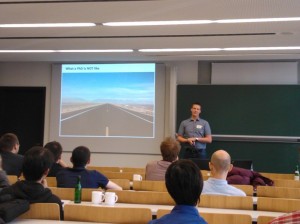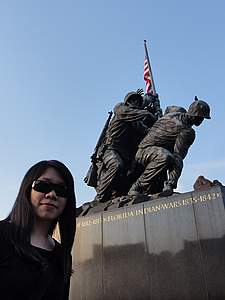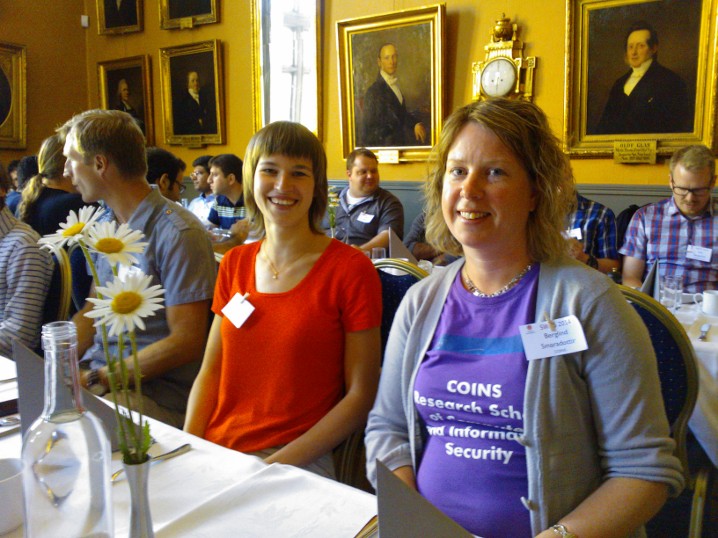We attended MyPhD in September to explore their concept of Ph.D. student workshops and to learn from their experience. MyPhD is an informal network of professors and Ph.D. students in applied IT security in Germany. There is no legal entity for the network and collaboration happens because of a common will to bring together students from different research groups. MyPhD looks back at five succcessful workshops in the past: Passau, Erlangen, Aachen, Bochum, Hamburg.
 The main activity of MyPhD is an annual 1.5-day workshop for Ph.D. students from the participating universities. Attendance of professors/supervisors is considered important, so scheduling is based on when the highest number of professors is able to join the event. Students decide for themselves whether they want to attend, but are often encouraged by their supervisors. Typically, about 5-10 professors and 20-30 students come together. Organisation is done by one or two Ph.D. students and administrative staff of the hosting institution for the year.
The main activity of MyPhD is an annual 1.5-day workshop for Ph.D. students from the participating universities. Attendance of professors/supervisors is considered important, so scheduling is based on when the highest number of professors is able to join the event. Students decide for themselves whether they want to attend, but are often encouraged by their supervisors. Typically, about 5-10 professors and 20-30 students come together. Organisation is done by one or two Ph.D. students and administrative staff of the hosting institution for the year.
Every participant is expected/required to contribute. Students choose from one of the following formats:
- 10 minutes for short presentation of ideas/thesis topics (5 minutes/3 slides); MyPhD had 12 of these, and COINS student Yi-Ching Liao contributed one
- 30 minutes for research presentation; MyPhD had 11 of these
- 30 minutes for experience presentation, typically given by senior Ph.D. students sharing “lessons learned”; MyPhD had 1 of these
Students got constructive feedback after each of the presentations. Both students and supervisors engaged in discussion and helped to find exciting research questions and to scope topics.
In addition, there was a talk on how to learn from rejected papers to improve content and presentation for resubmission (with some diversions on the academic review process in general), given by Dieter Gollmann. We also were given the opportunity to give a presentation on COINS. That was well received and we discussed how students from both networks could benefit from interacting with each other. Invited speakers shared insights about research challenges in applied IT security as seen from industry.
 A highlight of the agenda was a 1.5-hour panel discussion titled “Ask the professors/professionals”. Student could submit questions anonymously or by raising a hand, and all professors/industry panelists were asked to provide their opinions. Questions included e.g. “How much time do you spend advising your doctoral students and how much would you like to spend?”, “How many papers should one have accepted before submitting a dissertation?”, “How do you deal with choosing the authors of a paper?” Answers were by far not unanimously given, so both panelists and students enjoyed a lively discussion.
A highlight of the agenda was a 1.5-hour panel discussion titled “Ask the professors/professionals”. Student could submit questions anonymously or by raising a hand, and all professors/industry panelists were asked to provide their opinions. Questions included e.g. “How much time do you spend advising your doctoral students and how much would you like to spend?”, “How many papers should one have accepted before submitting a dissertation?”, “How do you deal with choosing the authors of a paper?” Answers were by far not unanimously given, so both panelists and students enjoyed a lively discussion.
The audience was ca. 60% German students, 40% students with an international background pursuing a Ph.D. with one of the participatig German universities. All presentations were given in English, and all discussion was conducted in English. There was a clear “Laptops stay closed” policy, obeyed by almost all of the participants. Emails needed to be checked in one of the four breaks during the day. Keeping laptops closed kept everyone focusing on the talks and engaged more people in discussion than usually observed at conferences in the field.
On the practical side, auditorium and room for coffee break (including beverages and pastries) are provided by the hosting university, lunch is served in the cafeteria and paid for by the university. External speakers are not paid. Participants pay for travel and for the hotel they choose, as well as for the dinner in the evening of the first day. A social event on Sunday evening before the workshop on Monday/Tuesday was optional and led us to Korean finger food and karaoke.
Well done, MyPhD students, it was a great experience to see you all contribute to an intensive networking event!
 Yi-Ching Liao, Ph.D. student of COINS in her first year, returned home with an improved understanding of the scientific business: “The research process is not about fire-and-forget, submitting papers one after another without improvement. Researchers should understand how and why to improve the state of the art, and receiving feedback effectively greatly increases the likelihood of achieving better research. Submitting papers is just a periodical phase, and always getting the ideas onto paper makes continuous research possible. Always measure the soundness and false negatives of the research outcomes, since information will be lost or missed by human beings.”
Yi-Ching Liao, Ph.D. student of COINS in her first year, returned home with an improved understanding of the scientific business: “The research process is not about fire-and-forget, submitting papers one after another without improvement. Researchers should understand how and why to improve the state of the art, and receiving feedback effectively greatly increases the likelihood of achieving better research. Submitting papers is just a periodical phase, and always getting the ideas onto paper makes continuous research possible. Always measure the soundness and false negatives of the research outcomes, since information will be lost or missed by human beings.”

